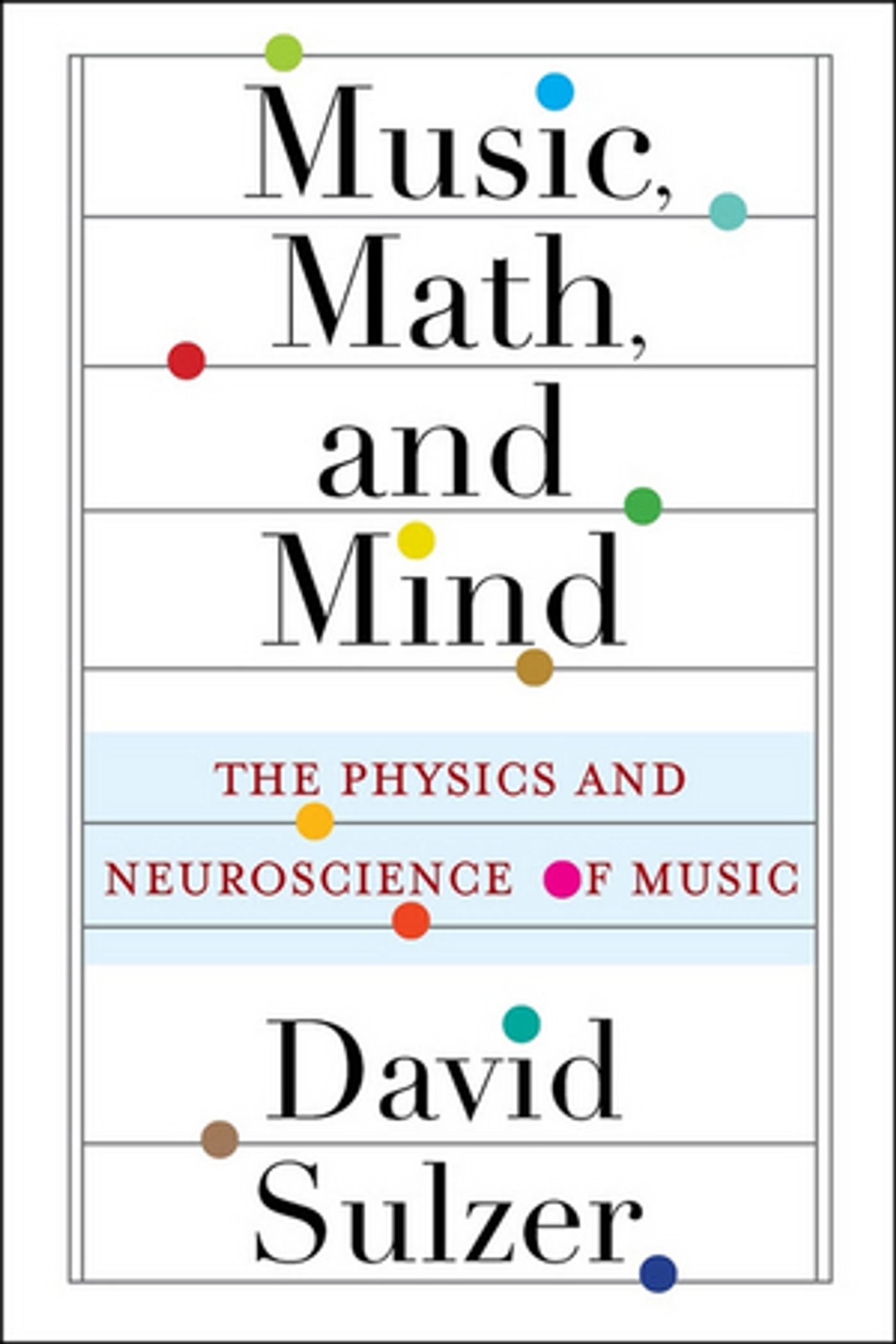Neuroscientist David Sulzer To Release Debut Book MUSIC, MATH, AND MIND: THE PHYSICS AND NEUROSCIENCE OF MUSIC
Dr. Sulzer, also known in the musical world as Dave Soldier, explains why the perception of music encompasses the physics of sound, and more.

David Sulzer's debut book, Music, Math, and Mind, offers a lively exploration of the mathematics, physics, and neuroscience that underlie music in a way that readers without scientific background can follow.
Dr. Sulzer, also known in the musical world as Dave Soldier, explains why the perception of music encompasses the physics of sound, the functions of the ear and deep-brain auditory pathways, and the physiology of emotion. He delves into topics such as the math by which musical scales, rhythms, tuning, and harmonies are derived, from the days of Pythagoras to technological manipulation of sound waves. Sulzer makes accessible a vast range of material-styles from around the world to canonical composers to hip-hop, the history of experimental music, and animal music by songbirds, cetaceans, bats, and insects.
From David Sulzer:
"Musicians and music lovers have innate curiosity about what they do and love, but essential questions that underlie every style of music aren't taught in classes, textbooks, or in pop science books. For example, why are there musical scales, what does it mean when something is out-of-tune, do other animals hear differently than we do, why are sounds different from each other, and how do we know it? These topics have been examined for thousands of years, but the math, physics and biology is intimidating to non-specialists. With this book and a bit of patience, anyone with grade school level multiplication and division can understand these questions and develop a basis for more profound understanding of what it means to engage in art."
David Sulzer is a professor in the Departments of Psychiatry, Neurology, and Pharmacology at Columbia University Medical Center. His laboratory has made important contributions to the study of brain mechanisms involved in autism, Parkinson's disease, drug addiction, and learning and memory. In his alter ego, Dave Soldier, he is a composer, performer, and producer who has worked with many major figures in the classical, jazz, and pop worlds, appearing on over one hundred records. Some of his projects bridge music and neuroscience, including the Thai Elephant Orchestra (an orchestra of fourteen elephants in Northern Thailand), and the Brainwave Music Project, which uses EEGs of brain activity to create compositions.
Some of the questions answered in Music, Math, and Mind:
How are emotions carried by music?
How does the brain understand what it is listening to?
How can we measure music? How fast, long and tall is it?
What does it mean for sounds to be in or out of tune?
How might a musician use math to come up with new ideas?
Is there a mathematical definition of noise and consonance?
How do we associate music with time, place, and dreams?
Do other animals perceive sound and music like we do?
DETAILS:
Music, Math, and Mind: The Physics and Neuroscience of Music
By David Sulzer
Columbia University Press
Pub Date: April 27, 2021
304 pages
Hardcover $120.00 / £93.00 (978-0-231-19378-8)
Paperback $28.00 / £22.00 (978-0-231-19379-5)
E-book $27.99 / £22.00 (978-0-231-55050-5)

Videos

